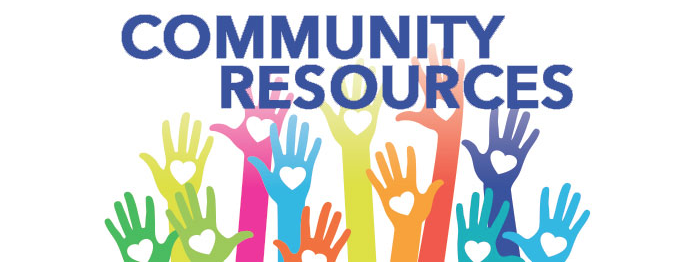||| BY MIA KARTIGANER, SPECIAL TO theORCASONIAN |||
While our fire department continues to search for leaks among the career responders, they don’t seem as concerned with their own.
Within two days of the OIFR board, chief, assistant chief and board secretary receiving Commissioner Marlow’s letter of resignation, Leith Templin was able to include it in her latest email to the Orcas Island Community Foundation board, in her ongoing attempt to unseat their director. Who provided Leith with the letter? Did they know and/or share her intent? Why the persistence of petty and vindictive actions?
How do we know when we are being played? For me it was the combination of the commissioner’s often verbatim reiterations of specifics involving what was essentially gossip, to put it nicely, bluntly I would say character assassinations. They drew me a picture of Alex Conrad, whom I’d never met, as a maleficent ego, driven to grasp power at any cost, including their friendships. There was a gleefully Schadenfreude-esque tone when I was told that Dimitri Stankevich had lost the chief’s ear and was now on the “outside” – this from a commissioner that Dimitri has never spoken with. And Dimitri had the audacity, when asked who he thought would be a better chief, to say himself (again, a commissioner Dimitri has never spoken with). Based on professional experience alone I would say that was accurate, if it’s true. But the useful idiots would have you believe that Dimitri’s desire to be chief has led them down the road they are now on. They allude to it repeatedly, often without naming him.
There have been demonstrable and recurring acts of retaliation against whistleblowers and past responders at OIFR. The latest defense by the administration and their supporters is that they, the board and chief, are actually protecting the career personnel who have been unduly creating overtime for themselves. How are so many people aware of the curated content and context of this supposed protection? Leaks abound.
I’d like to know how many hours of overtime were created to cover a forced resignation, a retirement, the state of emergency and a medic who has been on paid administrative leave for nearly three months now. (Why?)
I would argue that extra hours have been due to management decisions, not the people who are affected by those decisions.
Shifting into Volunteer numbers; when I asked the chief about the number of volunteers with the department he said fifty. I clarified that I was looking for active members. He went over the list and said thirty-eight.
Of those thirty-eight (or so), ten went on fewer than twenty-four calls last year. Five of them were below the minimum required.
Member in Good Standing **Updated for 2020**
The requirements to be a member in good standing are based on training attendance, duty shifts, and minimum call response during the year. All district members are required to have 12 call responses, 100 hours of duty shifts, and the training hours as listed below for each discipline to be a member in good standing. In 2020, if you respond on 25 or more calls, the 100 hour duty shift requirement is waived unless the member is in Review Status for the year.
Examples:
- Scenario 1: you have 20 call responses, 70 shift hours, and 36 hours of training in your primary discipline. You did not make your numbers as you were short on duty shifts.
- Scenario 2: same as above, but 25 call responses, you then qualify in good standing as your shift requirement is waived. You must maintain your certifications and licenses by attending the drills for your primary discipline (Fire and/or EMS) first and then any other discipline(s) you claim. The following minimums are needed: 36 hours of drill annually for your primary discipline(s) and 24 hours (or more depending on level within discipline) for each additional discipline thereafter. Your primary discipline must be Fire and/or EMS and must be maintained before secondary disciplines.
- Fire and/or EMS primary disciplines = 36 hours annually for each (if Fire or EMS, 36 hours. If Fire and EMS, 36 for each = 72 hours)
- Additional disciplines = 24 hours per discipline (Rescue, Wildland, MRATS)
I am so grateful for all of our neighbors who have made this huge commitment.
What is true since COVID began, numbers of responding volunteers are down everywhere. In a Canadian study I read, they found that the loss of opportunities for comradery played a big role in the loss of active volunteers.
We have four volunteers in training to be firefighters. Two of them are already involved with the department as volunteer EMTs. We might have had another if the admin. had responded to any of the three letters one local sent declaring his interest. Kevin Ranker is the only Orcas Islander presently training to be an EMT.
Some of the local concerns about the number of active volunteers have to do with the WSRB- the Washington State Review Board who rate OIFR’s ability to fight fires. That rating directly affects our homeowner’s insurance policies. The rating is dependent on apparatus, available water and the number of active firefighters.
When I questioned the Chief and Assistant Chief about this they omitted the people on the ground component of that rating. Had they mentioned it I would have taken a closer look at the volunteer map on the board to see where we may be short on firefighters. I didn’t know, until I knew.
To clarify comments on Lin McNulty’s recent Editorial, Scott Williams is one of three full-time resident paramedics on Orcas Island. The other two are no longer working with the department. As of this posting the assistant chief is still not licensed to work in San Juan County without supervision, also true of our other new paramedic.
Again, all of this information is available in the minutes and through public records requests. I am happy to share what I have received. I consulted with the Municipal Research & Services Center (MRSC) on the question of disclosing the fire chief’s evaluations:
Ultimately, it will be up to the fire district, in consultation with its legal counsel, to determine whether a performance evaluation for its fire chief is exempt from disclosure.
As noted in the AGO’s materials:
Courts have held disclosure of an employee’s performance evaluations with no discussion of specific incidents of misconduct is presumed to be highly offensive and of no legitimate concern to the public. Dawson v. Daly (1993); Brown v. Seattle Public Schools (1993). Disclosure of this information between a public employee and supervisor normally serves no legitimate public interest and would impair the candidness of evaluations and employee morale if made public to anyone upon request. However, the performance evaluation of a city manager – the city’s chief executive officer, its leader, and a public figure – was not exempt because it was of legitimate concern to the public. Spokane Research & Defense Fund v. City of Spokane (2000).
The question for the fire district will be whether the fire chief, as the chief executive officer of the fire district, is similar to the city manager in the Spokane Research case (in which case the exemption would not apply).
The Spokane Research case was analyzed in the recent case of Church of the Divine Earth v. City of Tacoma, 13 Wn. App. 2d 497, 513, 466 P.3d 789, 797 (2020), which involved performance evaluations for city department heads:
In balancing the public’s interest in disclosure against the public’s interest in efficient administrative of government, we hold that no legitimate public concern justifies disclosure. Preventing disclosure of Huffman’s and Kingsolver’s performance evaluations protects the vital functions of effective government. Unlike a city manager, Huffman and Kingsolver are two of several department directors for the City. Department directors are neither the City’s leader nor public figureheads. Huffman’s and Kingsolver’s performance evaluations were individual conversations with a supervisor; the public was not involved at any stage of the performance evaluation process. Although department directors assume leadership and decision-making roles, their position is more analogous to a school principal.
It was their choice. And no, the question is not who’s asking and why? In fact that question isn’t meant to be asked, certainly not by anyone not named in the request and certainly not in a phone call from a stranger in a tone that is experienced as threatening. Just saying.
**If you are reading theOrcasonian for free, thank your fellow islanders. If you would like to support theOrcasonian CLICK HERE to set your modestly-priced, voluntary subscription. Otherwise, no worries; we’re happy to share with you.**








Correction- Orcas Islander David Cook is also presently training to be an EMT
Amendment to correction- forthcoming- perhaps it could be done as one. I’m sourcing it first